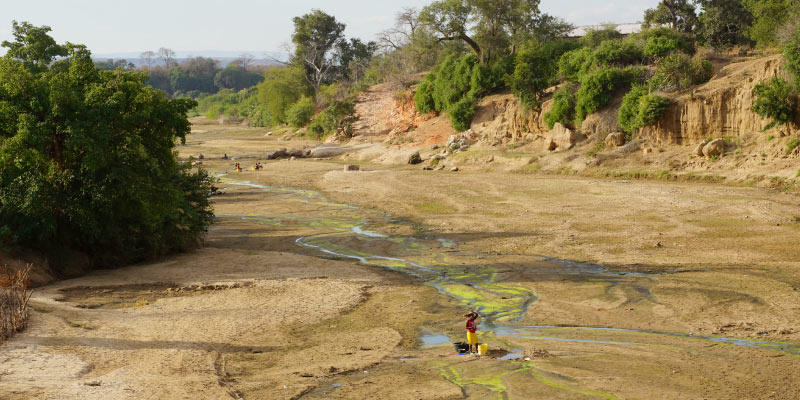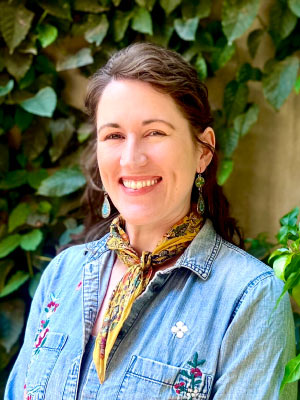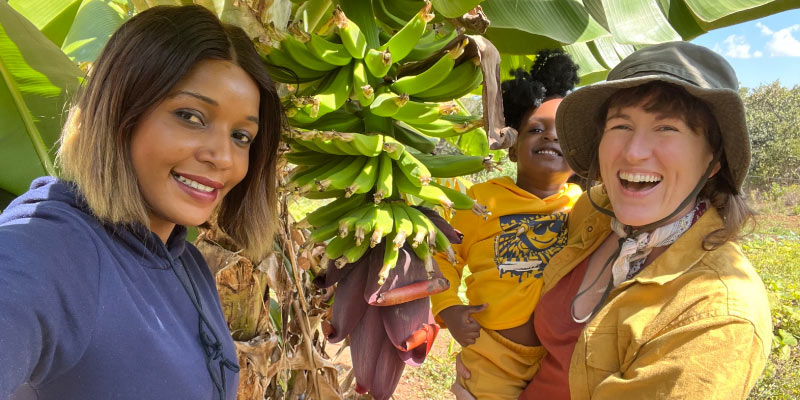
Lend Nelson Institute PhD student Colleen Henegan your ear, and she’ll tell you all about her time in Zambia, a landlocked country in the south of Africa. As Henegan recounts the months she spent researching, surveying, and living alongside the people of Zambia, it’s easy to see the passion she has for her work.
“I stayed in a village just outside of Kafue Town, and it’s just one of the most beautiful regions of Zambia that I’ve seen,” Henegan said. “It’s an agrarian community full of hills with beautiful sunsets and sunrises.”

Henegan has been to Zambia four times in the past four years to research edible insect farming and the impacts of climate change on agriculture in Zambia with her good friend and research assistant, Mwansa Matokwani. Her time on this research topic is chronicled by Matokwani’s now four-year-old daughter, Wandipa, who was born shortly before Henegan arrived in Zambia in 2019.
“[Matokwani] and I clicked incredibly well when we first met in July of 2019, and she’s become one of my closest friends,” Henegan said. “I first met her daughter when she was one month old, and it’s been so fun to see her grow up.”
While in Zambia for her PhD research, Henegan also used her experience as inspiration for her Pulitzer Center reporting fellowship. There, she wrote about the effects of climate change on Zambian agriculture along with reflections of a changed world since the COVID-19 pandemic.
The reporting fellowship is a culmination of years of dedicated interest in language arts and environmentalism; Henegan majored in Environmental Studies and minored in English Literature while an undergraduate student at Denison University in Granville, Ohio. After graduating in 2012, Henegan joined the Mississippi Delta Corps for Teach for America where she was trained as a biology teacher, earning her teaching license and teaching high school science for a combined six years in rural Arkansas and Austin, Texas.
“I kind of fell into teaching after graduating. Teaching was something I had always enjoyed, and I wanted to develop those skills a bit more,” Henegan said. “Then after six years of that, I realized my passion lies in contributing to the environmental field as well as teaching – so academia allows me to do both!”
Henegan then enrolled in the Nelson Institute and moved to Madison to begin her master’s degree where she began taking classes like Climate Change Ecology, Agroecosystems and Global Change, and Literary Ethnography. These courses provided Henegan with the skills and knowledge necessary to create meaningful change in the environmental field, but it was her Public Health and Global Environmental Change course taught by Professor Jonathan Patz that she said, “changed my life.”
While in class, Patz invited Valerie Stull, a postdoctoral researcher at his research lab, to give a presentation on farming edible insects and how it can help combat malnutrition in areas affected by climate change. “I loved her presentation so much,” Henegan said, “that I went up to her afterward and asked her to teach me all she knew.”

Stull took Henegan under her wing, introduced her to the country of Zambia, and the rest is history. Now working on her PhD, Henegan’s focus has shifted more toward the future impacts of climate change on crop yield and the ways in which farmers can adapt, with a special focus on female-led farms. She hopes that her work will help prepare for future climatic changes that are disproportionately affecting tropical regions, like Zambia along with the women and children that live there, like Matokwani and her daughter.
“I’ve reflected on how Wandipa will be my age in 2050, which is when many of our climate models start to get much scarier,” Henegan said. “It really changed how I view my work to think about how she will be experiencing the future”
As Henegan reflects back over the years spent at the Nelson Institute, she advises students interested in earning their PhD to think of it as a marathon. “I think one of the best things to do with something that’s this long, is to really embrace it as part of your life,” Henegan said. “It’s important to be done within a good timeframe, but to also take the time to appreciate this moment in your life and to really live it.”